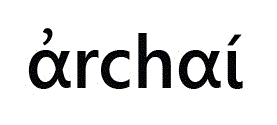Abstract:
At the third episode of Sophocles’ Electra, the heroine, believing that her brother Orestes is dead, invites her sister Chrisothemis to a plan to kill Aegisthus, in a speech that recalls fifth century Athenian’s public honors to the tyrannicide couple, Harmodius and Aristogiton, and thus presents the two sisters as a kind of democratic champions (v. 947-989). This paper compares the treatment given by contemporary Commentaries to Sophocles’ Electra to this speech with recent gender-oriented studies of Athenian citizenship, in order to argue that the idea of the ancient polis as a “man’s club” depends much more on a modern stereotype about Athenian politics than on the ancient evidence available to us - a stereotype that projects XIX century European conceptions of politics on the ancient context, and perpetuates backwards a supposedly universal masculine domination. In this light, Electra’s attitude, surely exceptional because of her equally exceptional situation, far from strikingly transgressing ancient gender-roles, points to the importance of female citizenship in democratic Athens.
Keywords:
tyrannicide; Sophocles’ Electra; gender; citizenship; Athenian democracy
